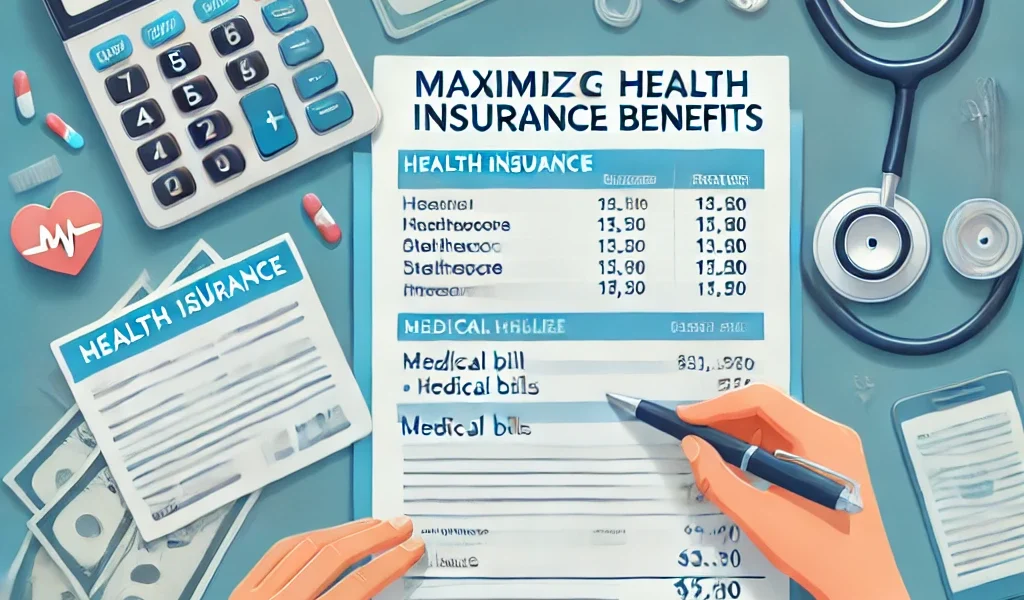Introduction
Health insurance is an essential financial tool that helps cover medical expenses, ensuring you get the best possible treatment without depleting your savings. However, many policyholders struggle with the complexities of health insurance claims, often facing delays, denials, or reduced payouts. Understanding the claims process and knowing how to navigate it effectively can help you maximize your benefits and avoid unnecessary financial burdens.
This guide will provide you with a step-by-step approach to filing health insurance claims, common reasons for claim denials, and expert tips to get the most out of your policy.
Understanding Health Insurance Claims
A health insurance claim is a formal request to your insurer for reimbursement or direct payment of medical expenses covered under your policy. There are two primary types of health insurance claims:
- Cashless Claims: The insurer directly settles the medical bills with the hospital if you get treated at a network hospital.
- Reimbursement Claims: You pay for the medical expenses upfront and then submit a claim for reimbursement from your insurer.
Step-by-Step Guide to Filing a Health Insurance Claim
1. Understand Your Policy
- Carefully read your policy document to understand what is covered, the exclusions, co-payments, waiting periods, and claim filing deadlines.
- Check if your preferred hospital is within the insurer’s network for cashless claims.
2. Gather Required Documents
- Doctor’s prescription and diagnosis reports.
- Hospital admission and discharge summary.
- Original medical bills and receipts.
- Pharmacy bills with doctor’s prescription.
- Insurance policy details and identity proof.
- Duly filled claim form from your insurer.
3. Notify Your Insurer
- For planned treatments, inform your insurer well in advance (typically 48-72 hours before hospitalization).
- In case of an emergency, notify the insurer within 24 hours of hospitalization.
4. Submit Your Claim
- For cashless claims, get pre-authorization from the insurer and ensure all hospital paperwork is correctly filled out.
- For reimbursement claims, compile all required documents and submit them to your insurer within the specified deadline.
5. Track Your Claim Status
- Most insurers provide online tracking systems to check the status of your claim.
- Keep a record of all communications with the insurer to resolve any issues quickly.
6. Follow Up Until Settlement
- If your claim is delayed, follow up regularly with your insurer for updates.
- If the claim is denied or underpaid, you have the right to appeal the decision.
Common Reasons for Health Insurance Claim Denials
- Incomplete or Incorrect Documentation: Missing medical reports, bills, or signatures can lead to claim rejection.
- Policy Exclusions: Some treatments, such as cosmetic surgery, fertility treatments, and pre-existing conditions, may not be covered.
- Delayed Submission: Not filing the claim within the stipulated time can lead to automatic rejection.
- Mismatched Information: Any discrepancy between your claim and the hospital records can cause delays or denials.
- Non-Network Hospital Treatment: If you opt for treatment in a non-network hospital, cashless benefits may not be applicable.
- Lack of Pre-Authorization: For planned procedures, failure to get prior approval can lead to a claim rejection.
Tips to Maximize Your Health Insurance Benefits
1. Choose the Right Health Insurance Plan
- Opt for a comprehensive policy that covers hospitalization, pre- and post-hospitalization expenses, and critical illnesses.
- Ensure your policy includes an adequate sum insured for your healthcare needs.
2. Use Network Hospitals for Cashless Benefits
- Always check if the hospital you are visiting is within your insurer’s network to avoid upfront payments.
3. Maintain Proper Medical Records
- Keep all medical bills, prescriptions, and reports organized for easy claim submission.
- Ask your doctor to provide detailed prescriptions and medical summaries.
4. Understand Your Policy’s Exclusions and Waiting Periods
- Be aware of the waiting period for pre-existing conditions or maternity benefits.
- Avoid unnecessary claim rejections by knowing what is excluded.
5. Negotiate Hospital Bills
- Hospitals may charge differently for insured patients; always review the bill for discrepancies.
- If necessary, negotiate the cost of treatments or opt for generic medicines.
6. File Claims Promptly
- Always submit your claims as soon as possible to avoid delays or missed deadlines.
7. Appeal Against Denied Claims
- If your claim is denied, request a written explanation and appeal the decision with supporting documents.
8. Seek Professional Help If Needed
- If you struggle with claim denials or complex medical bills, consider hiring an insurance consultant or legal expert.
What to Do If Your Health Insurance Claim Is Denied?
- Review the Denial Letter: Understand the reason for rejection and check if it was a genuine error.
- Gather Additional Evidence: Obtain additional medical documents or doctor’s statements to support your claim.
- Contact Your Insurer: Clarify the issue and request a re-evaluation of your claim.
- File an Appeal: Submit an appeal letter along with necessary documents within the deadline provided by the insurer.
- Escalate to Higher Authorities: If your appeal is rejected, you can escalate the case to the insurance ombudsman or regulatory authorities.
Conclusion
Filing a health insurance claim doesn’t have to be a stressful experience if you follow the right steps and stay informed about your policy. By understanding your coverage, keeping proper records, and submitting claims promptly, you can maximize your benefits and avoid claim denials. If your claim is rejected, don’t hesitate to appeal the decision with supporting evidence.
A well-managed health insurance claim ensures you receive the financial support you need during medical emergencies, allowing you to focus on recovery rather than financial worries.
Would you like an image to accompany this article? Let me know, and I can generate a relevant illustration for you!




